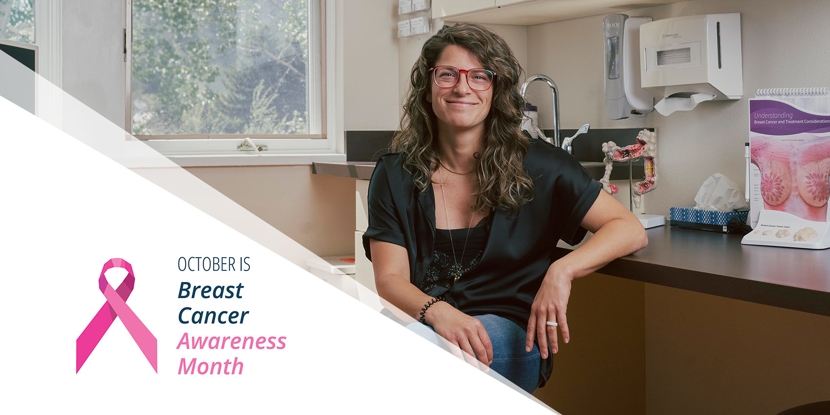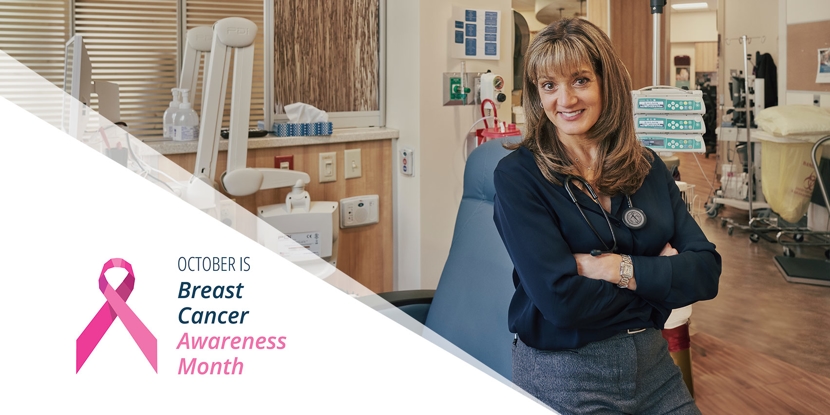Back-to-School Vaccinations Your Child Needs
- Category: Pediatrics
- Posted On:
- Written By: St. John's Health
.jpg)
As we approach the back-to-school season, we often focus on shopping for new backpacks, school supplies, and clothes. But parents must not forget to overlook one essential aspect of back-to-school preparations: vaccinations. With the new school year just around the corner, children must be up to date on the required vaccinations to protect themselves and their classmates against preventable diseases.
Despite some controversial opinions, vaccines have proven safe and effective in preventing severe illnesses. The Wyoming Department of Health (per the Wyo. Stat. § 21-4-309 and the Wyoming Immunization Rules) has set requirements for vaccines to be completed before a child can attend school. Today, we will discuss the essential vaccinations required for school attendance in Wyoming.
Understanding MMR Vaccinations: What They're Meant to Protect Against
The combination MMR vaccine protects against Measles, Mumps, and Rubella. It is mandatory for children attending Wyoming private or public childcare facilities, preschools, or schools (K-12), full or part-time.
Measles, mumps, and rubella are highly contagious diseases that can affect children and adults:
- Measles can be especially dangerous for young children, causing symptoms such as high fever, cough, and a runny nose. In some cases, it can even lead to severe complications like pneumonia or encephalitis.
- Mumps can cause swollen glands, fever, and headaches.
- Rubella, also known as German measles, can cause a rash, fever, and swollen glands.
Fortunately, the MMR vaccine can effectively protect against these diseases. This vaccine is typically given in two doses, at 12 to 15 months and 4 to 6 years old. The MMR vaccine is very safe and does not cause autism, a common myth that medical professionals have debunked.
MMR vaccination not only protects your child but also helps in achieving herd immunity. When a significant portion of the population is immunized, it is less likely that a disease will spread quickly and cause an outbreak, leading to protection for community members, including those who cannot be vaccinated due to medical reasons. Because of vaccination, dangerous diseases like measles have become rare, which only implies how significant vaccines can be for society.
All You Need to Know About DTap/dTap
DTap vaccination is a combination vaccine that helps protect children against diphtheria, tetanus, and pertussis. Diphtheria is a bacterial infection affecting the nose and throat, leading to breathing and heart problems. Tetanus, also known as lockjaw, is caused by bacteria that affect the nervous system, leading to muscle stiffness and difficulty swallowing. Pertussis, or whooping cough, is a highly contagious respiratory infection that can cause severe coughing and breathing problems. The DTap vaccine is usually given as a series of five shots, starting at two months of age and continuing at 4, 6, 15-18 months, and 4-6 years.
dTap vaccination, on the other hand, is a booster vaccine given to children between 11 and 12 years old. The vaccination is designed to protect against diphtheria, tetanus, and pertussis, especially for children who have received the DTap vaccine in their childhood. The dTap vaccine is also given to adults every ten years to provide continued protection against these diseases.
Both the DTap and dTap vaccinations are safe and effective. They have been tested and approved by the Centers for Disease Control and Prevention (CDC) and the World Health Organization (WHO). These organizations have concluded that vaccinations do not cause autism or other diseases despite some rumors and misconceptions surrounding them.
Other Mandatory Immunizations
Children attending a Wyoming public or private school, preschool, or child-caring facility must be vaccinated against:
Hepatitis A & B
Hepatitis A is a virus that can affect the liver and cause serious illness. The Hepatitis A vaccine can help prevent the spread of this disease, which is commonly spread from person-to-person contact or through contaminated food. Children must receive two doses of the vaccine before they attend school. The Hepatitis B virus can cause liver damage and cancer. Children receive three to four doses of the vaccine and are sometimes given a combined vaccine that includes protection against Hepatitis A.
Polio Vaccine
Polio is a viral infection that can cause paralysis and sometimes death. All children should receive four doses of the polio vaccine, usually by the time they are six years old.
Varicella (Chickenpox)
The Varicella vaccine helps prevent chickenpox, a highly contagious disease that can cause severe itching, rash, fever, and fatigue. Children must receive two doses of this vaccine before attending school. However, children who have already contracted and recovered from chickenpox may not need to be vaccinated.
Human Papillomavirus (HPV)
The HPV vaccine can prevent certain types of cancers and genital warts caused by the HPV virus. This vaccine is recommended for children between the ages of 9-14. Two doses of the vaccine are required for children to attend school in Wyoming.
Why Vaccines Are Pivotal for Public Health & Safety
Parents who are hesitant to vaccinate their children need to understand the benefits of vaccinations for their children’s health and the community. Vaccinations help reduce the spread of infectious diseases and protect individuals who cannot receive vaccines for medical reasons. When more individuals in a community are vaccinated, the likelihood of an outbreak is reduced.
The Wyoming Department of Health requires vaccines for children to attend school, and it is essential to ensure your child is up to date on their vaccinations before the school year starts. We recommend checking your child’s vaccination record to ensure they have received all the required vaccinations before starting school. By getting your child vaccinated, you will protect them, contribute to the community’s health, and help prevent the spread of disease. Remember, prevention is always better than cure.
Need to book a vaccine appointment? Are you confused about your child’s vaccine records? Talk to a friendly healthcare provider at St. John’s Health Family Medicine today about your child’s vaccination needs.



